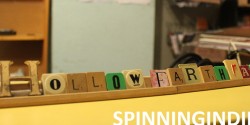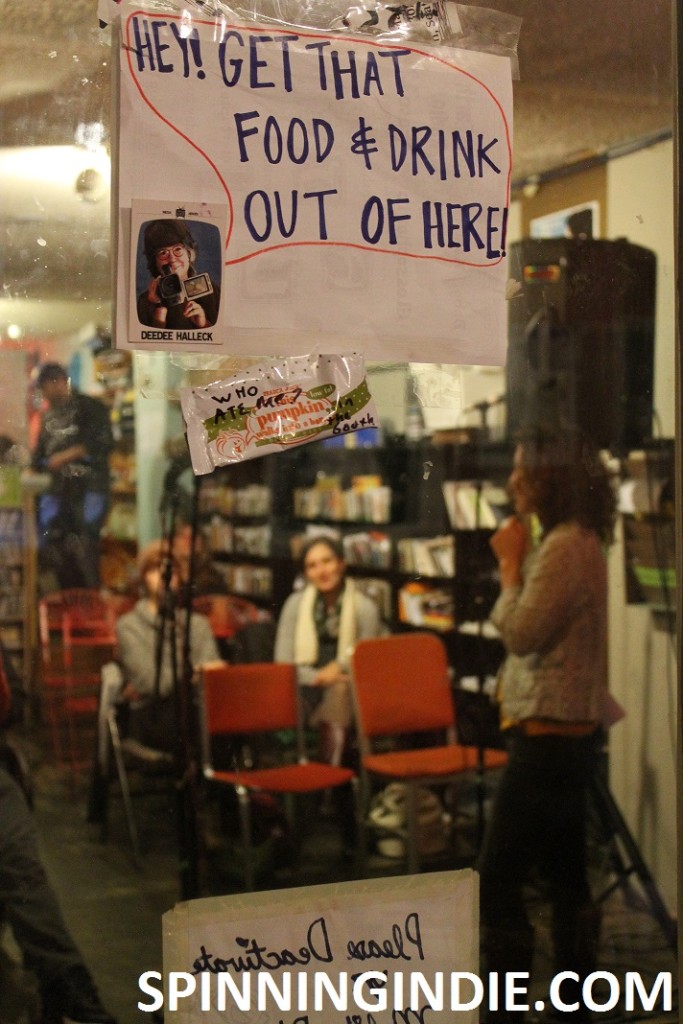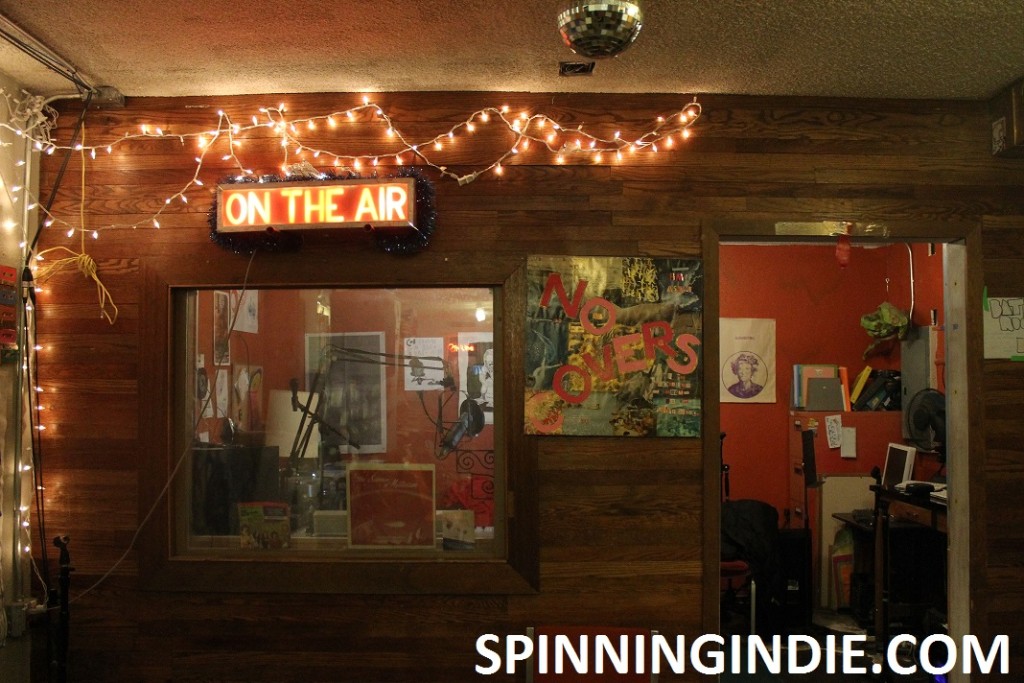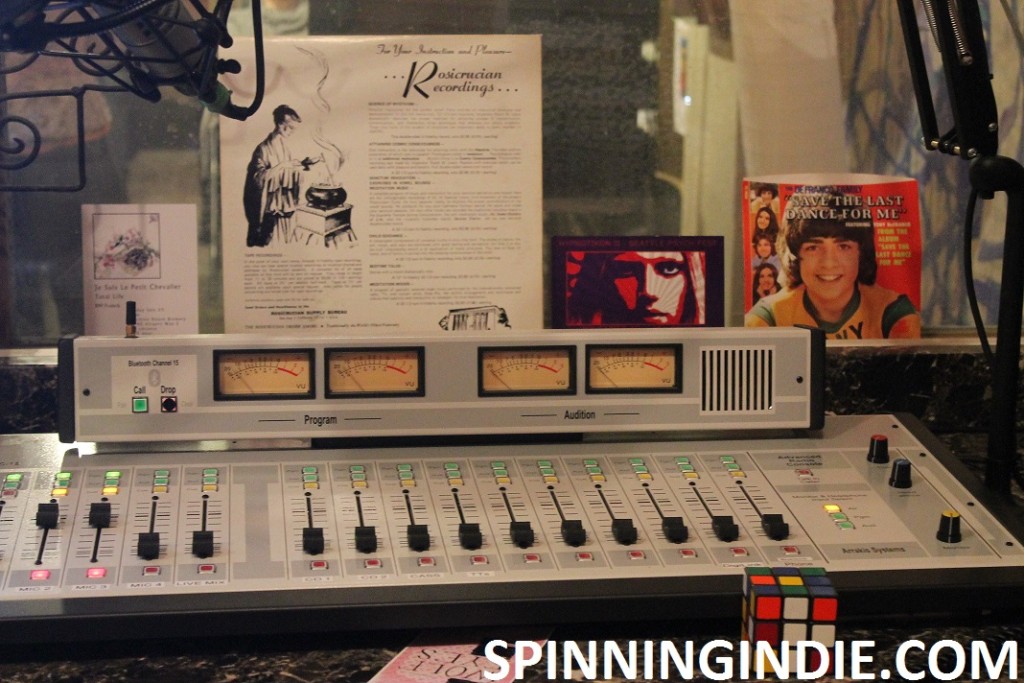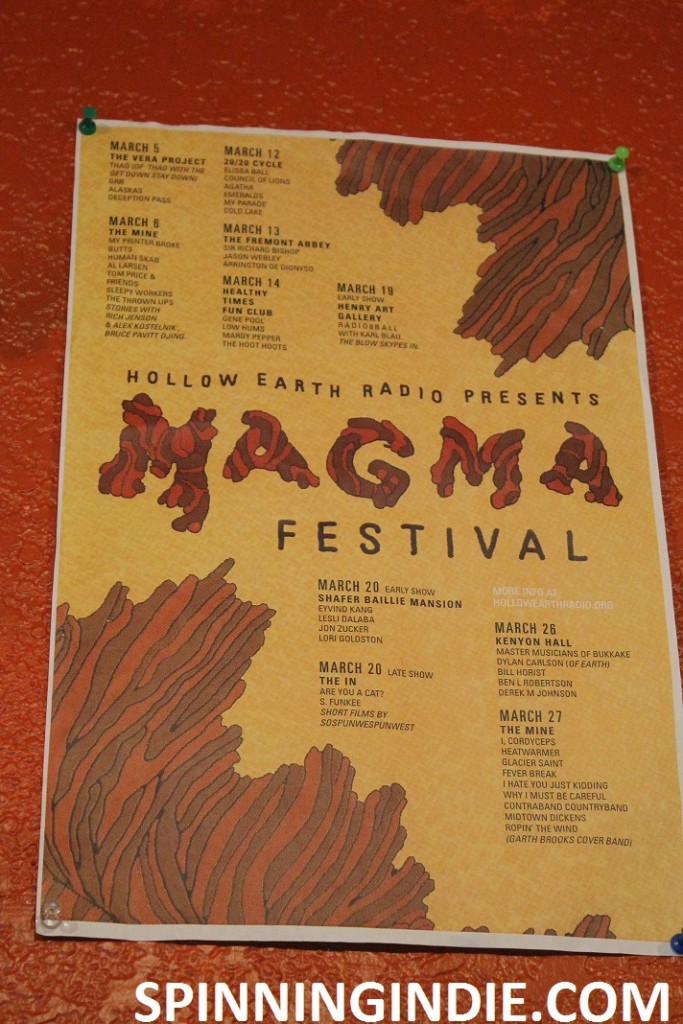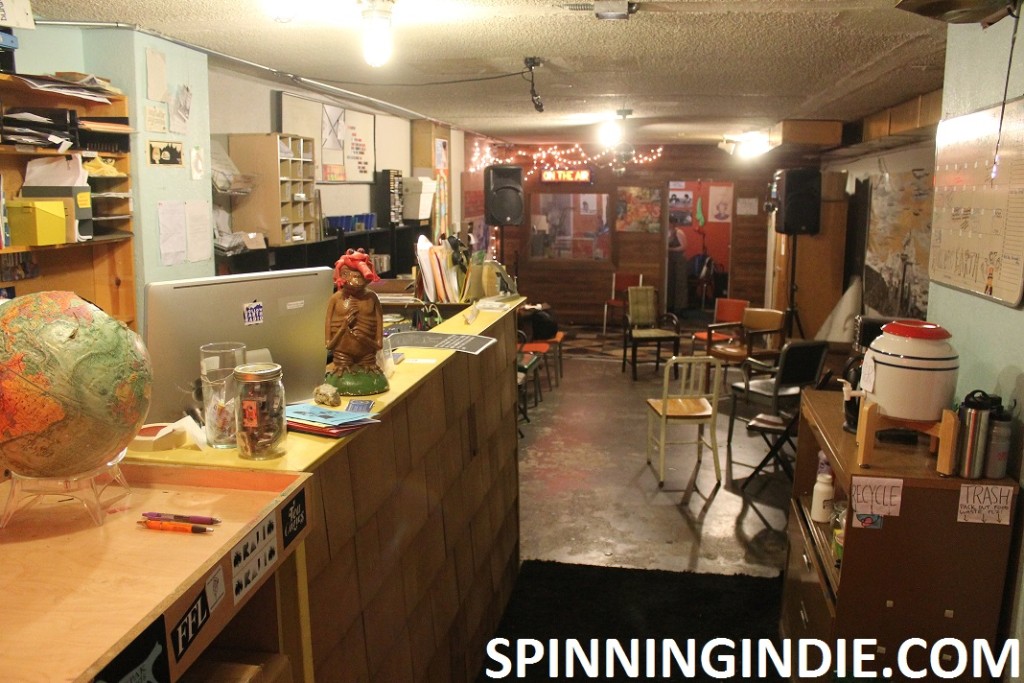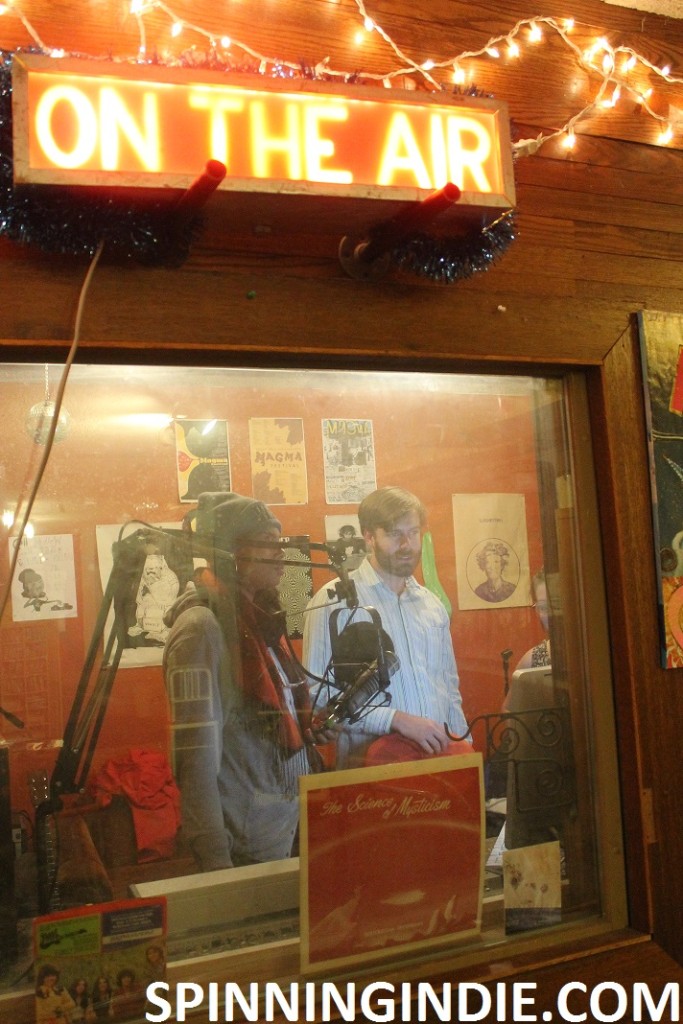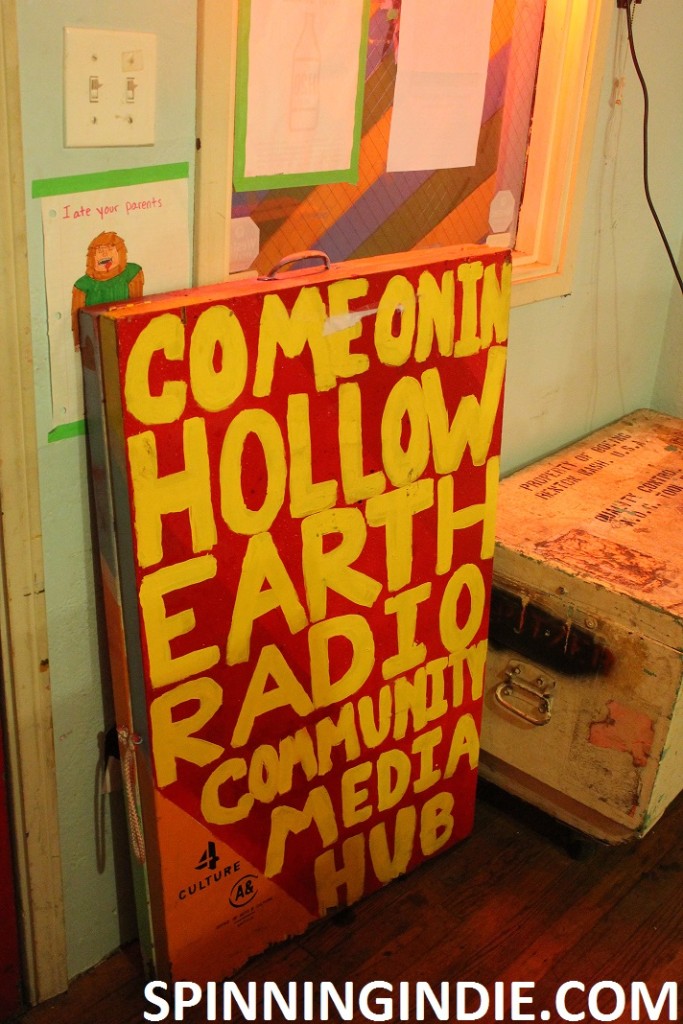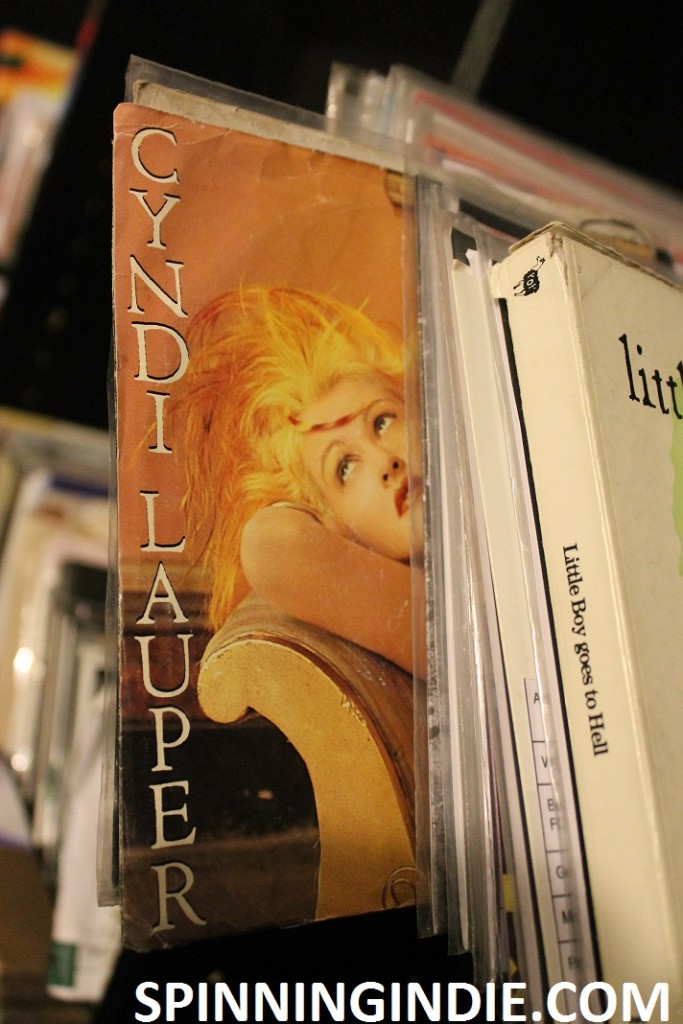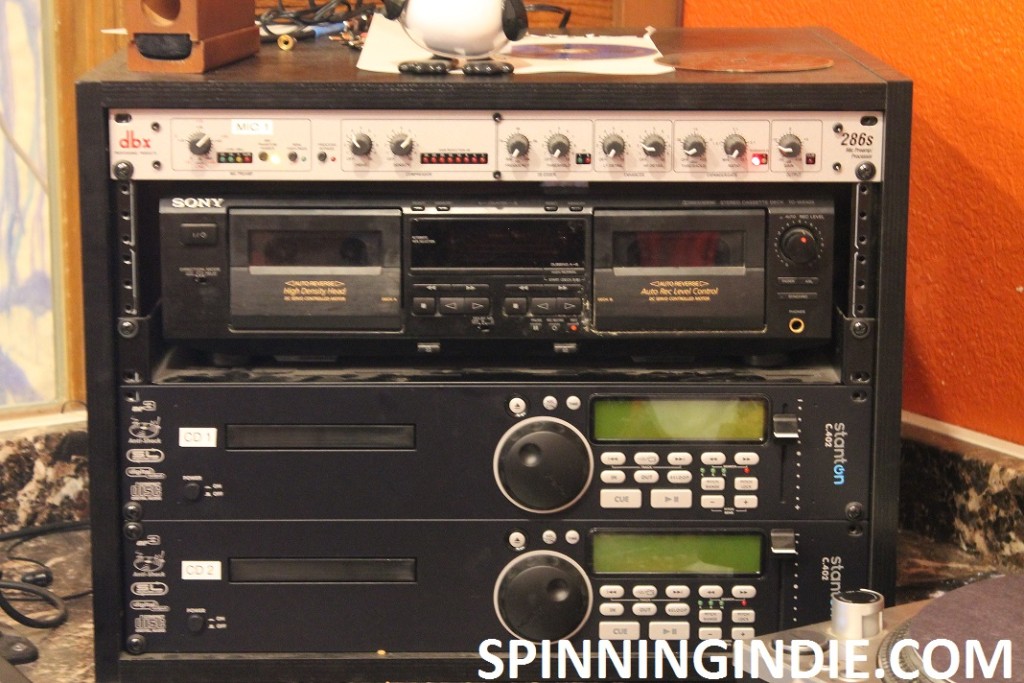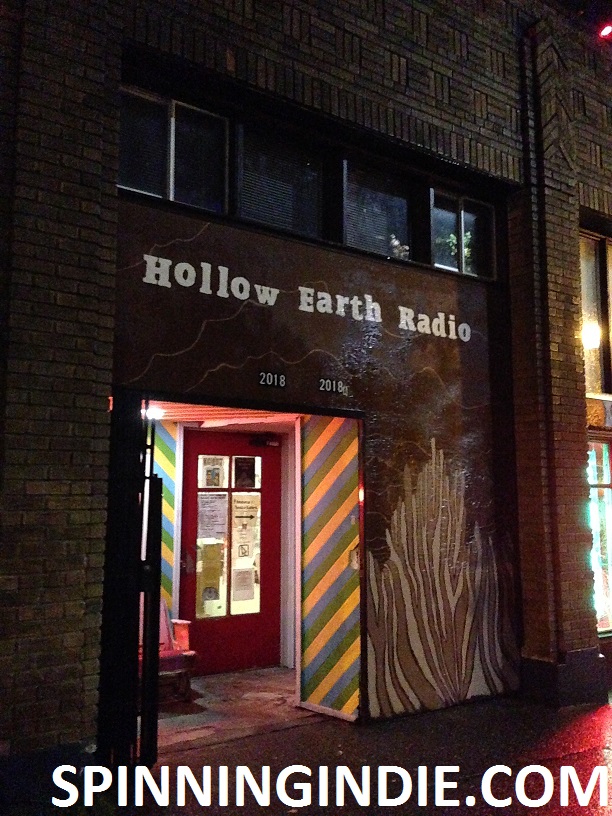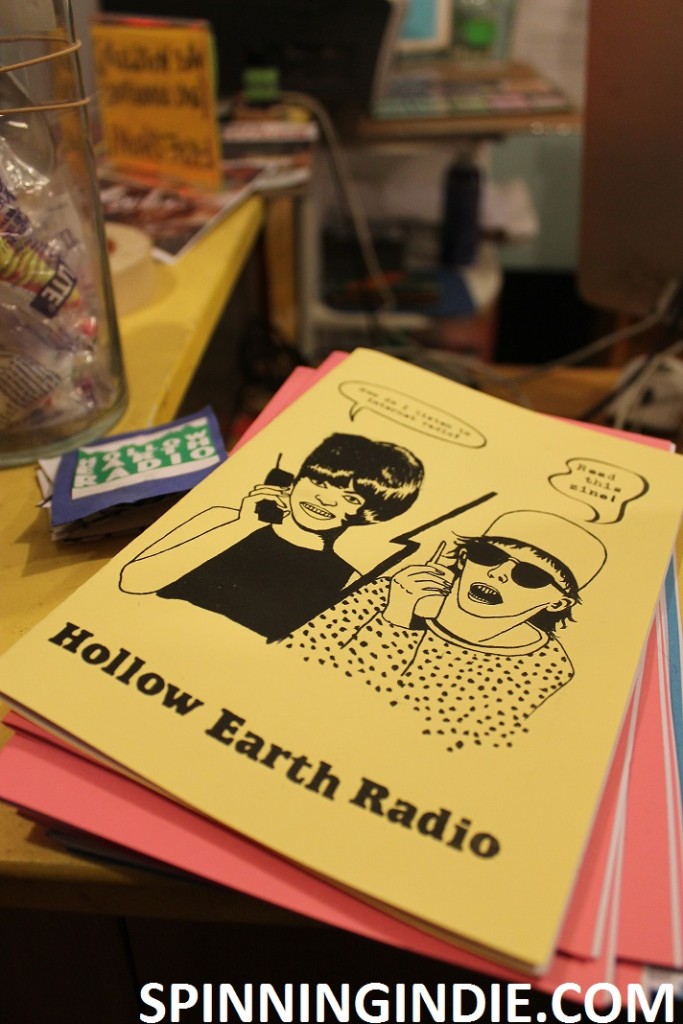At the end of a long day of radio station touring, my final stop on October 22, 2014 was to see Hollow Earth Radio in Seattle. At Radio Survivor we’ve been following the progress of this streaming community radio station for quite some time and so it was particularly exciting to get to visit to learn more about the soon-to-be low power FM (LPFM) station.
I headed over to Hollow Earth in the evening, just as a spoken word event was about to begin in the station’s common area.
After ducking into the studio, I grabbed a seat on the burnt orange colored couch. I was supposed to meet up with a few different folks, but due to unforeseen circumstances, they weren’t able to make it. Although this might have been awkward at other stations, everyone at Hollow Earth Radio took it in stride and the overall vibe was incredibly welcoming.
One DJ, Domenica Clark, was particularly excited to chat about radio with me, telling me, “I’m super nerdy about radio.” Having also volunteered at college/community radio station KAOS in Olympia, Washington, Clark talked a bit about Hollow Earth’s plans for low power FM (LPFM).
Clark has been involved with Hollow Earth for 4 years (the station launched in 2007) and has been doing radio for a total of 10 years. She explained that Hollow Earth started out in its founders’ house before moving to its current location in Seattle’s Central District. She told me that LPFM was a “logical progression” and that they “wanted to reach a wider audience.” Clark said that it’s been a “very conscious effort to connect with the community that we’re a part of.”
Even without a terrestrial signal, Hollow Earth Radio seems to be entrenched in the Seattle music scene. The station hosts a music festival called the Magma Festival and this March will mark its 8th annual MagmaFest.
Clark told me that she’s been interested in a wide range of music over the years and also used to curate the Olympia Experimental Music Festival. She co-hosts a show that focuses on “disco and boogie music” and explained that she is “obsessed” with electrofunk and boogie music, even though she used to play more noise and indie music. Her co-host plays material that’s more “avant,” including sound poetry. She said that they are “both really inspired by WFMU.”
Following the reading, DJ Coop arrived to do his program and he graciously allowed me to be a fly on the wall. He told me that his show’s emphasis is local hip hop, explaining that “Seattle hip hop has a very unique cadence” and that “something about it sets it apart.”
DJ Coop said that although some Seattle stations are playing hip hop, Hollow Earth is the only one to focus solely on local hip hop. He said that it makes sense to have this sort of show at the station, since one of Hollow Earth’s “mandates” is to “support underrepresented music and local music.” At the time of my visit, he’d been doing his program for about 6 months. He talked a bit about the emphasis on community at the station, telling me that they encourage neighbors to walk in and get involved with the station. Perhaps because of that, he added that Hollow Earth is “such a chameleon.”
The wide range of music being played by the DJs who I spoke with seems to encapsulate the overall experimental music ethos of Hollow Earth Radio. According to its website,
Hollow Earth Radio is the Pacific Northwest’s freeform online radio station that presents a forum for underrepresented music, sounds and perspectives. We support the local music community in Seattle, King County, Washington state, and the larger Pacific Northwest. Our focus is on found sound, field recordings, forgotten music, local musicians, bedroom recordings, low-fi demos, dreams, storytelling, and things that feel real. We expose works that have yet to be unearthed or have long been dormant. We acknowledge and celebrate raw talent and imperfections, and encourage bands who’ve never had their music air on a radio before to take a chance with us.”
Like Clark, DJ Coop also did college radio prior to joining Hollow Earth (he and his fiance met while at KUGS at Western Washington University). While I watched him do his show, someone stopped by to get on-air training and then another prospective DJ popped in to learn more about the station. He was welcoming to everyone and by the end of the show there were a handful of people crammed into the studio.
The Hollow Earth Studio is outfitted with turntables, cassette decks, CD players, and computers. There’s a physical music library in the station lobby, containing LPs, 7″ records, CDs, and cassettes. I also saw some random video tapes, as well as tiny answering machine tapes on display. The station has a wide range of programs and at the time of my visit there was a local music show, a prog rock show, a noise show, and more.
Thanks so much to everyone at Hollow Earth for a great visit! I wish them well as they prepare to begin broadcasting over LPFM.
This is my 74th radio station field trip report. I’ve got one more Seattle visit to write up and will then report on a trip to a college radio station in San Francisco. See my most recent field trips on Radio Survivor and see all of my station field trips on Spinning Indie.

